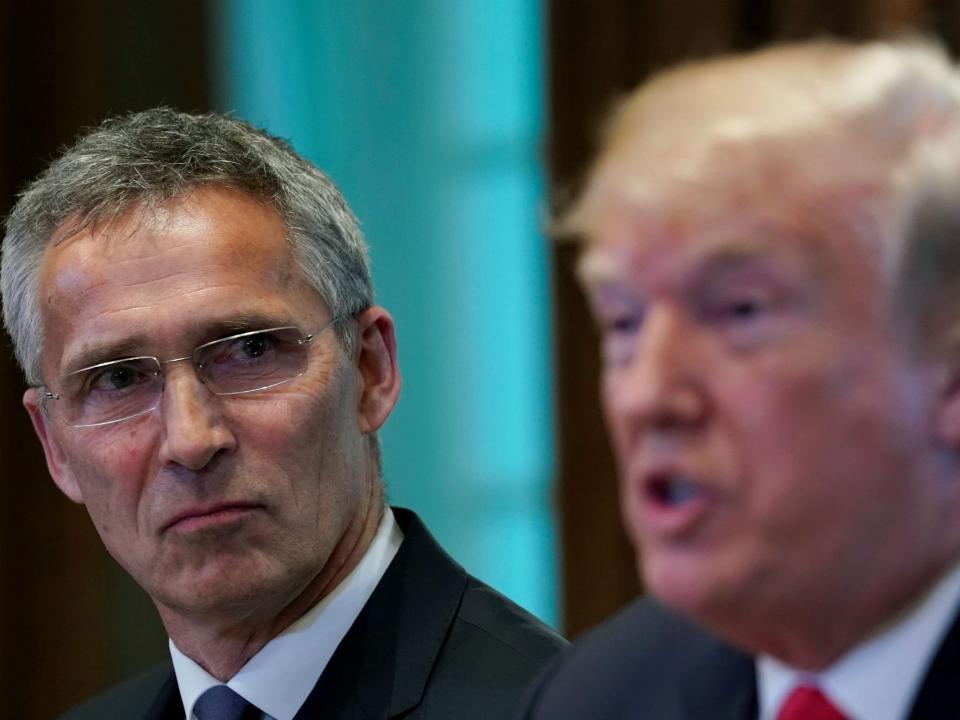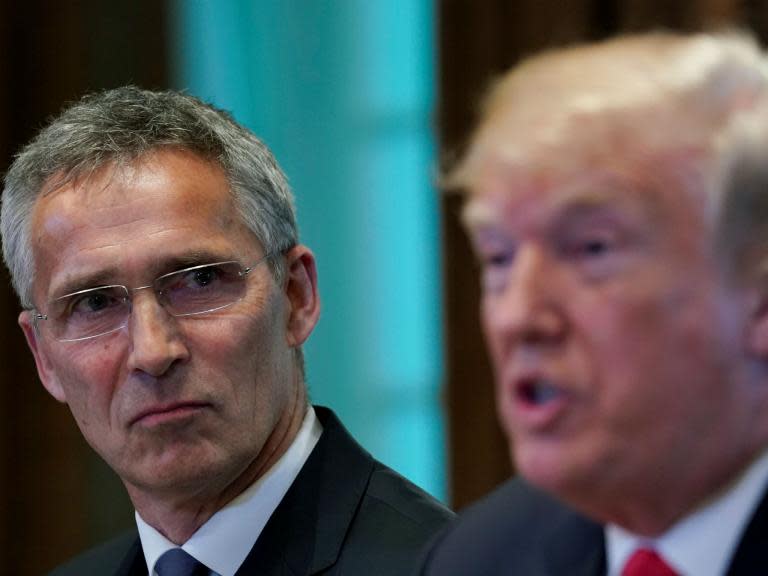Donald Trump warns Nato members will be ‘dealt with’ if they refuse to pay more for military alliance
Donald Trump singled out Germany in renewing his criticism of Nato members he accuses of not contributing enough, saying laggards would be “dealt with”.
Speaking alongside Nato’s secretary general, Jens Stoltenberg, at the White House, Mr Trump reiterated a longstanding charge that America bears a disproportionate share of supporting the military alliance’s activities.
Germany “has not contributed what it should be contributing and it’s a very big beneficiary”, said the president, who has long had a frosty relationship with the German chancellor, Angela Merkel.
The president’s worldview is rooted in a belief the US has consistently been taken advantage of by international pacts and organisations - a scepticism that fuels his unilaterally focused “America First” stance.
During the presidential campaign, he suggested America might only defend Nato allies if they had “fulfilled their obligations to us”.
Despite Mr Trump’s wariness, Mr Stoltenberg praised the president for impelling other nations to augment defence spending, saying “it is impacting allies because now all allies are increasing defence spending”.
The president echoed that comment by saying his relationship with Nato was “really good”.
“Together we’ve increased and really raised money from countries that were not paying or were not paying a fair share,” Mr Trump said.
That show of solidarity notwithstanding, America’s relations with some of its most critical allies have come under strain in recent months as Mr Trump has moved to fulfill controversial campaign promises.
Brushing off European leaders who urged him to reconsider, Mr Trump announced earlier this month that he would be pulling America from a deal to stymie Iran’s nuclear weapons programme.
Mr Trump had long derided the pact for empowering America’s chief rival in the Middle East.
Europe and Iran have since sought to work together to salvage the deal, suggesting that other world powers will veer off on a different path from the Trump administration.
While representatives of Germany, France and the UK were meeting with Iranian foreign minister Javad Zarif for what Mr Zarif heralded as a “good start” to talks, the US Treasury Department was announcing a new round of sanctions intended to crack down on Iranian sponsorship of armed proxies.
The EU president, Donald Tusk, referenced a broader realignment while issuing a searing criticism of Mr Trump’s foreign policy the day before, saying America was acting with “capricious assertivess” and “got rid of all illusions” about its divergent track from Europe.
In response, Mr Trump retorted that “the European Union has been terrible to the United States on trade”.
“They can call me all sorts of names,” Mr Trump said.
Separately, Mr Trump’s decision to recognise Jerusalem as the capital of Israel has also met international criticism.
The vast majority of other countries signed onto a UN resolution condemning the decision after Mr Trump announced it last year, and the opening of an American embassy in Jerusalem last week spurred fresh rebukes as thousands of Palestinians were shot during protests.
As a planned meeting between Mr Trump and North Korean leader Kim Jong-un draws closer, Mr Trump has surrounded himself with advisers who have a record of preferring assertive American actions to multilateralism.
His new national security adviser, John Bolton, is a stalwart Iraq War supporter who has advocated military strikes on Iran and North Korea. His recently confirmed secretary of state, Mike Pompeo, shares the president’s support for taking a hard line with Iran.


